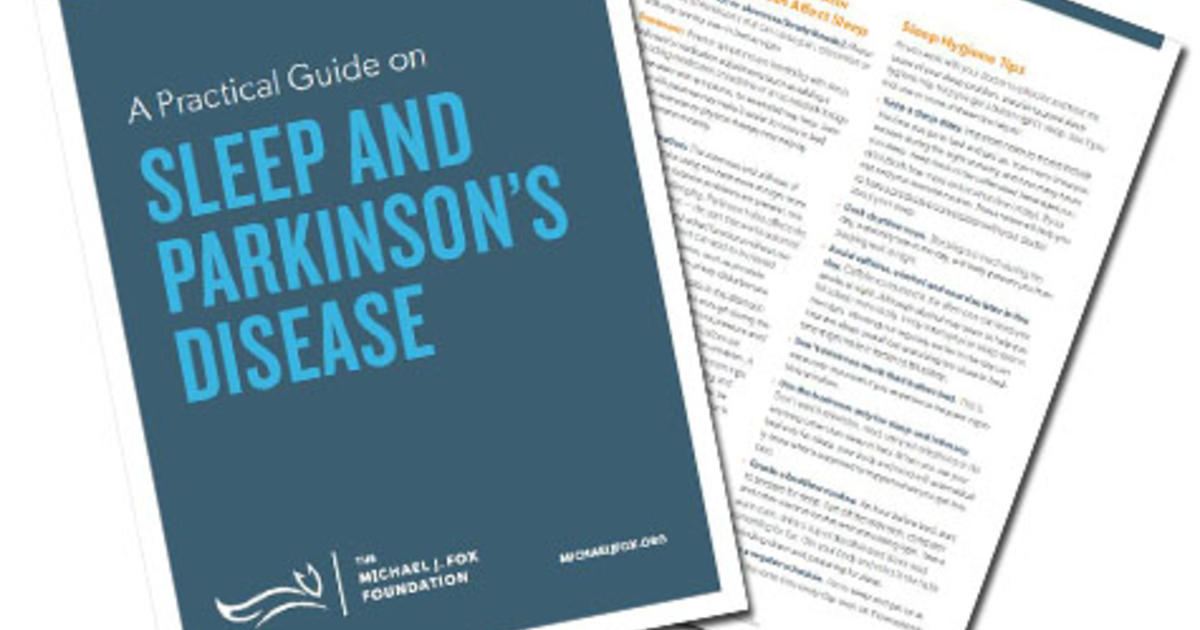Sleep Disorders
Many people with Parkinson’s disease (PD) have trouble falling asleep or staying asleep at night. Some sleep problems are caused by Parkinson’s symptoms, while others may be the result of the medications used to treat those symptoms. Factors unrelated to Parkinson’s can also impact sleep, including other medical conditions, normal aging or poor “sleep hygiene”
(habits that prevent or interrupt a regular sleep schedule)
Types of Sleep Disturbances
- Insomnia
- Daytime Sleepiness / Hypersomnia
- REM Sleep Behaviour (RBD)
- Restless Legs Syndrome
- Sleep apnoea
Ask the MD - Video

Tips to help you sleep better
As you work with your doctor to pinpoint and treat the cause of your sleep problem, practising good sleep hygiene may help you get a better night’s sleep.
Keep a sleep diary or use technology to track your sleep. Important notes to record include the time you go to bed and get up, how many times you awaken during the night and why, and how many hours you sleep. Keep track of the caffeinated beverages you drink (both how many and at what time of day), if you nap and your exercise routine. These notes will help you to have a productive conversation with your doctor about your sleep.
Limit daytime naps. Sleeping too much during the day, especially late in the day will likely prevent you from sleeping well at night.
Avoid caffeine, alcohol and exercise later in the day. Caffeine consumed in the afternoon can keep you awake at night. Although alcohol may seem to help you fall asleep more easily, it may interrupt your sleep later in the night. Working out regularly earlier in the day can improve sleep overall but exercising too close to bedtime might make it harder to fall asleep.
Don’t drink too much fluid before bed. This is especially important if you experience frequent nighttime urination.
Use the bedroom only for sleep and intimacy. Don’t watch television, read, use your telephone or do anything other than sleep in bed. When you use your bed only for sleep, your body and mind will automatically know what’s supposed to happen when you get into bed.
Create a bedtime routine. An hour before bed, start to prepare for sleep. Turn off the television, computer and other electronics that emit stimulating light. Take a warm bath, drink a cup of decaffeinated tea or read something for fun. Get your body and mind in the habit of winding down and preparing for sleep.
Keep a regular schedule. Go to sleep and get up at around the same time every day, even on the weekends.
Download the Sleep Guide
Many people with Parkinson’s disease (PD) have trouble falling asleep or
staying asleep at night. Some sleep problems are caused by Parkinson’s
symptoms, while others may be the result of the medications used to treat
those symptoms. Factors unrelated to Parkinson’s can also impact sleep,
including other medical conditions, normal aging or poor “sleep hygiene”
(habits that prevent or interrupt a regular sleep schedule).
This guide outlines the sleep difficulties that people with Parkinson’s
experience most often and the treatments that may be prescribed for each.
You’ll also find a list of sleep hygiene tips and answers to frequently asked
questions about PD and sleep.
REM Sleep Disorder (RBD)
Dream enactment behaviour where patients can injure themselves and/or their bed partners is a common symptom that needs to be addressed in Parkinson’s Disease, Lewy Body Dementia and Multiple System Atrophy. “Possibly the most dramatic of its symptoms, however is known as REM Sleep Behaviour Disorder. Parkinson patients have been known to start acting out in their dreams, often punching or kicking the person sharing their bed. “For some Parkinson patients it comes as a revelation and relief, not to mention their spouses, that the condition may be responsible for things that go ‘bump’ or ’kick’ in the night,” says Dr Lewis.


